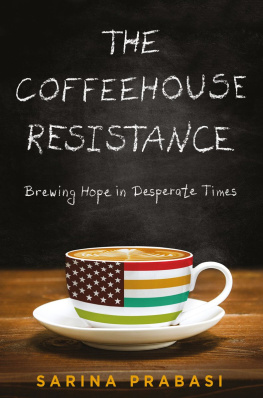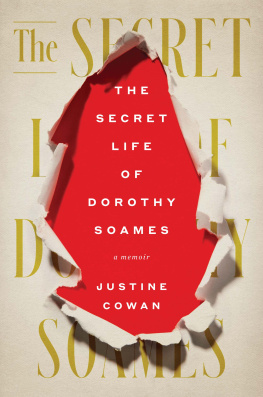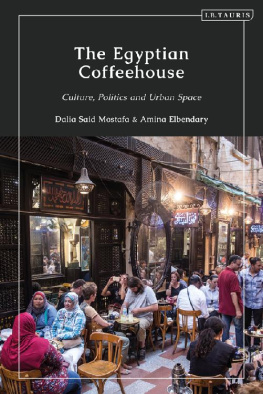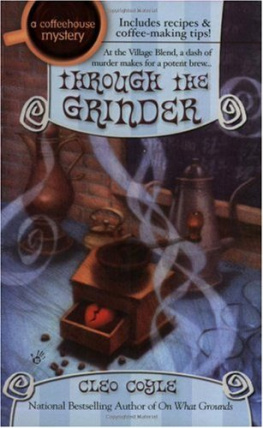Cowan - The social life of coffee: the emergence of the British coffeehouse
Here you can read online Cowan - The social life of coffee: the emergence of the British coffeehouse full text of the book (entire story) in english for free. Download pdf and epub, get meaning, cover and reviews about this ebook. City: New Haven;CT, year: 2010;2005, publisher: Yale University Press, genre: Romance novel. Description of the work, (preface) as well as reviews are available. Best literature library LitArk.com created for fans of good reading and offers a wide selection of genres:
Romance novel
Science fiction
Adventure
Detective
Science
History
Home and family
Prose
Art
Politics
Computer
Non-fiction
Religion
Business
Children
Humor
Choose a favorite category and find really read worthwhile books. Enjoy immersion in the world of imagination, feel the emotions of the characters or learn something new for yourself, make an fascinating discovery.

- Book:The social life of coffee: the emergence of the British coffeehouse
- Author:
- Publisher:Yale University Press
- Genre:
- Year:2010;2005
- City:New Haven;CT
- Rating:4 / 5
- Favourites:Add to favourites
- Your mark:
- 80
- 1
- 2
- 3
- 4
- 5
The social life of coffee: the emergence of the British coffeehouse: summary, description and annotation
We offer to read an annotation, description, summary or preface (depends on what the author of the book "The social life of coffee: the emergence of the British coffeehouse" wrote himself). If you haven't found the necessary information about the book — write in the comments, we will try to find it.
The social life of coffee: the emergence of the British coffeehouse — read online for free the complete book (whole text) full work
Below is the text of the book, divided by pages. System saving the place of the last page read, allows you to conveniently read the book "The social life of coffee: the emergence of the British coffeehouse" online for free, without having to search again every time where you left off. Put a bookmark, and you can go to the page where you finished reading at any time.
Font size:
Interval:
Bookmark:
The Social Life of Coffee
THE EMERGENCE OF THE BRITISH COFFEEHOUSE
BRIAN COWAN

Published with assistance from the Annie Burr Lewis Fund.
Published with the assistance of the Frederick W. Hilles Publication Fund of Yale University.
Copyright 2005 by Yale University.
All rights reserved.
This book may not be reproduced, in whole or in part, including illustrations, in any form (beyond that copying permitted by Sections 107 and 108 of the U.S. Copyright Law and except by reviewers for the public press), without written permission from the publishers.
Set in Sabon type by Keystone Typesetting, Inc.
Printed in the United States of America.
Library of Congress Cataloging-in-Publication Data
Cowan, Brian William, 1969
The social life of coffee : the emergence of the British coffeehouse / Brian Cowan.
p. cm.
Includes bibliographical references and index.
ISBN 0-300-10666-1 (cloth: alk. paper)
1. Coffeehouses History. 2. Coffee History. I. Title.
TX908.C68 2005
647.9509 dc22
2005043555
A catalogue record for this book is available from the British Library.
The paper in this book meets the guidelines for permanence and durability of the Committee on Production Guidelines for Book Longevity of the Council on Library Resources.
10 9 8 7 6 5 4 3 2 1
The history of coffee has been on my mind for almost a decade now, and over the course of this time I have had many opportunities to share these thoughts with a number of individuals in a variety of locations. I am acutely aware of just how fortunate I have been to work with so many interesting people along the way.
I began working on this book at Princeton University, where Peter Lake offered his indomitable support, advice and encouragement at every step along the way. The rest of the historical community at Princeton also played an important role in shaping the ways in which I began to think about the rise of British coffee. Robert Darntons graduate seminar on the social history of eighteenth-century ideas first inspired me to pursue this topic and he has continued to be an important source of guidance and encouragement. Lawrence Stone enlivened my first thoughts on this topic and they will be forever poorer for lacking his continued insights; the magnificence of his historical imagination remains an example to us all. I was also fortunate to study British history along with a remarkable cohort of historians including Susan Why-man, Alastair Bellany, David Como, Margaret Sena, Ethan Shagan, Ignacio Gallup-Diaz, John Hintermaier, and Brendan Kane, each of whom encouraged me to think more clearly about this project in numerous discussions.
The argument of this book is based on a wide reading in archival sources on both sides of the Atlantic. I am particularly grateful to the archivists, librarians, and staff at the British Library; the Public Record Office (now the National Archives); the London Metropolitan Archives; the Corporation of London Record Office; the London Guildhall Library; the archives of the Royal Society; the Department of Prints and Drawings at the British Museum; Dr. Williams Library; the National Art Library at the Victoria and Albert Museum; the Westminster Archives Centre; the National Library of Scotland; the Bodleian Library; and the Cambridge University Library. In the United States, I am indebted to the staff at Princeton Universitys Firestone Library, especially the late John Henneman. At Yale, the staff at Sterling Library, especially Susanne Roberts; the Beinecke Library, especially Stephen Parks; the British Art Center, especially Lisa Ford and Elisabeth Fairman; and Maggie Powell at the Lewis Walpole Library have been immensely helpful and supportive. The Huntington Library, the William Andrews Clark Library, and the Folger Shakespeare Library have offered substantial research support and source materials which have been immensely helpful.
Research for this book was made possible by a Leverhulme Foundation Fellowship at the University of Kent at Canterbury in the year 2000. The University of Sussex in Brighton, England, and Yale University in New Haven, New England both offered welcome bases from which I was able to continue to refine my arguments as well as begin my teaching career. I am particularly grateful to Master John Rogers and Associate Master Cornelia Pearsall for welcoming me as a Resident Fellow of Berkeley College and providing me with a wonderful set of college rooms in which I was able to rethink and rewrite the bulk of this book. My new colleagues in the Department of History at McGill University have received this work enthusiastically, and I look forward to working with them in the years to come.
The arguments presented here have been discussed and debated with countless excellent scholars. I have received particularly useful advice and assistance from Tricia Allerston, John Demos, Paul Freedman, Tim Harris, Negley Harte, Michael Hunter, Adrian Johns, Jane Kamensky, Newton Key, Lawrence Klein, Peter Mandler, Neil De Marchi, David Ormrod, Nicholas Phillipson, Steven Pincus, James Rosenheim, David Harris Sacks, John Styles, Keith Wrightson, and several anonymous readers for Yale University Press. I have also presented versions of many of the chapters to audiences at Warwick University; the Berkshire Womens History Conference in Rochester, New York; the Institute of Historical Research at the University of London; the Victoria and Albert Museum; the University of Utah; Harvard University; the University of Leeds; Edinburgh University; the North American Conferences on British Studies in Cambridge, Massachusetts, and in Toronto; Emory University; Stanford University; and the Melbern G. Glasscock Humanities Center at Texas A&M University. I am grateful to all of the participants in these seminars for their helpful comments and questions.
Grants from the Whitney Humanities Center and the Huntington Library helped expand the research base upon which my arguments have been based. Funding for the illustrations has been kindly supported through the assistance of the Frederick W. Hilles Publication Fund of Yale University.
Portions of this book have been previously published in earlier form as: What Was Masculine About the Public Sphere? Gender and the Coffeehouse Milieu in Post-Restoration England, History Workshop Journal 51 (2001); The Rise of the Coffeehouse Reconsidered, Historical Journal 47:1 (2004); and Mr. Spectator and the Coffeehouse Public Sphere, Eighteenth-Century Studies 37:3 (2004), although each of these articles has a separate historiographical point to make that is distinct from the wider argument of this book. I am grateful to the publishers of these journals for permission to reprint excerpts from these articles here.
Yale University Press has been an exemplary publisher for this book and I must thank my editors Lara Heimert and Molly Egland as well as Keith Condon for their help in bringing this book into print.
The most important debts are often reserved for last, and this is no exception. The book is dedicated to my parents, William and Beverly Cowan, who have unstintingly supported my studies from the very beginning.
The Social Life of Coffee refers extensively to early modern source material in various media, printed, manuscript, and visual. My quotations from these sources attempt to capture the character of the original sources without sacrificing readability. To the latter end, abbreviations have been expanded, the punctuation has often been silently altered, and characters such as
Next pageFont size:
Interval:
Bookmark:
Similar books «The social life of coffee: the emergence of the British coffeehouse»
Look at similar books to The social life of coffee: the emergence of the British coffeehouse. We have selected literature similar in name and meaning in the hope of providing readers with more options to find new, interesting, not yet read works.
Discussion, reviews of the book The social life of coffee: the emergence of the British coffeehouse and just readers' own opinions. Leave your comments, write what you think about the work, its meaning or the main characters. Specify what exactly you liked and what you didn't like, and why you think so.















